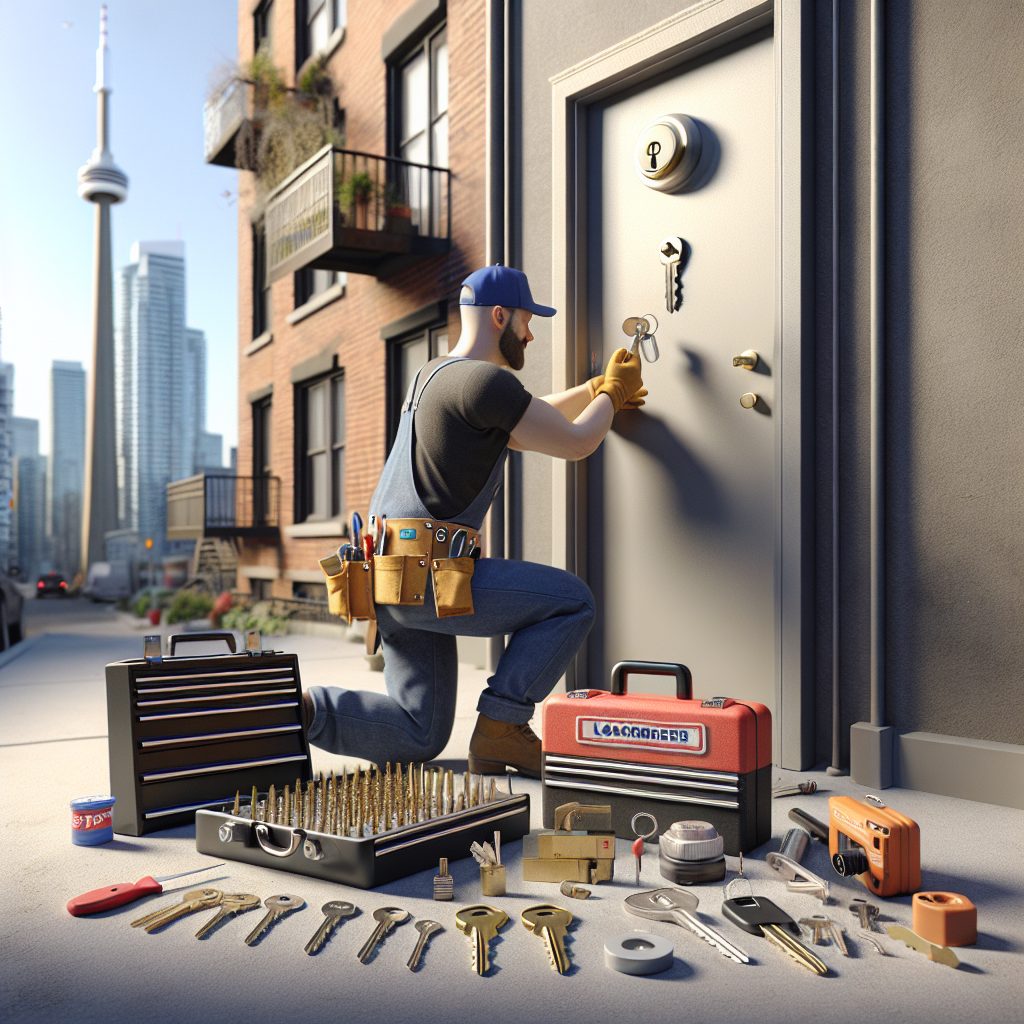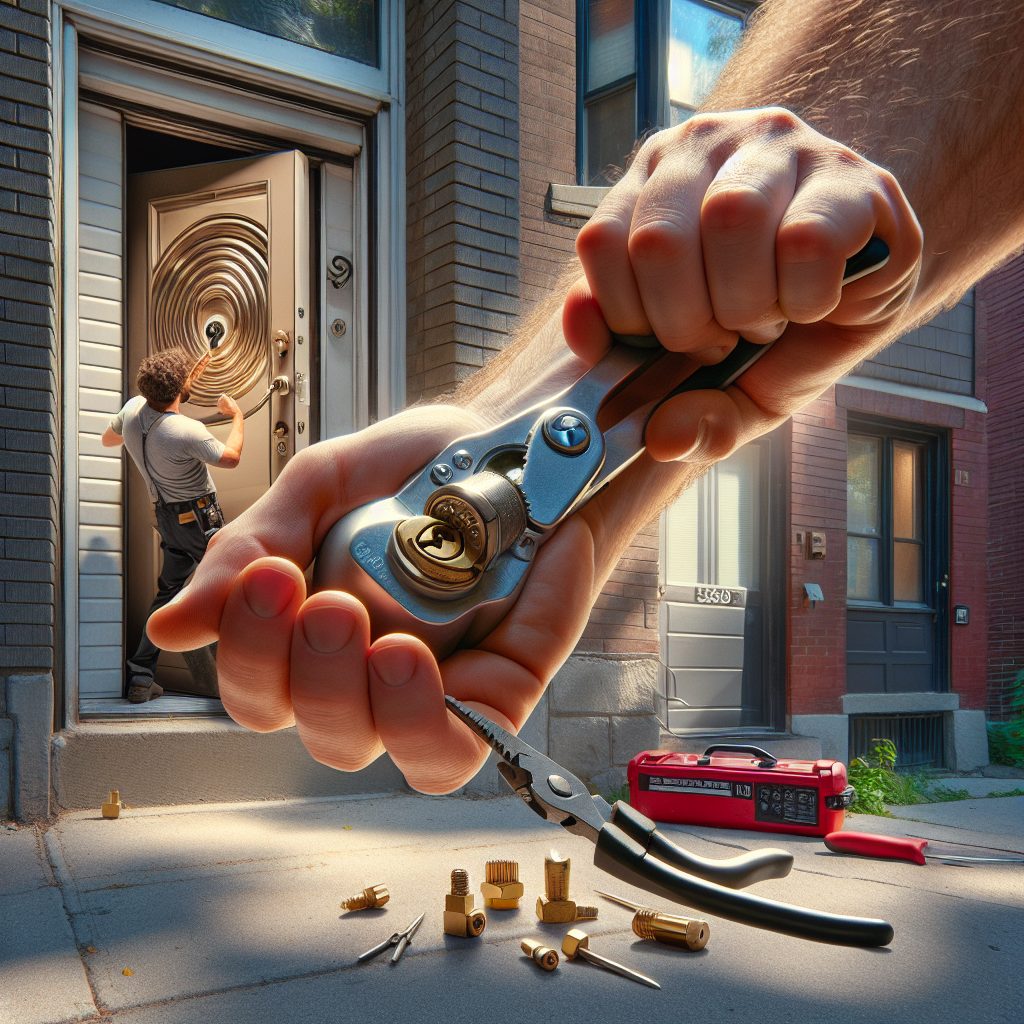Lock changes for rental units in Toronto are a crucial aspect of ensuring the security and privacy of both tenants and landlords. In this guide, we will explore the various factors that contribute to the need for lock changes in rental units in Toronto. Firstly, it is important to understand that a lock change involves replacing the existing lock with a new one, either due to a tenant turnover or as a precautionary measure. This process ensures that only authorized individuals have access to the rental unit and helps prevent unauthorized entry. Additionally, lock changes are often necessary to maintain the safety and satisfaction of tenants, as well as to comply with legal and insurance requirements.
One specific impact of lock changes in rental units is the improvement of tenant safety and peace of mind. By replacing the existing lock, tenants can feel more secure knowing that they have sole control over access to their rental unit. This is especially important in densely populated areas like Toronto, where shared living spaces can present potential security risks. Another unique feature of lock changes in rental units is its ability to prevent unauthorized entry. Landlords can ensure that only authorized individuals, such as the tenant and maintenance personnel, have access to the unit. This not only protects the tenant’s belongings but also provides a sense of privacy and control over their living space.
Moving forward, we will delve into the key takeaways regarding lock changes for rental units in Toronto. We will discuss the legal requirements and guidelines for lock changes, as well as the different types of locks and their advantages. Furthermore, we will explore the process of scheduling lock changes and the associated costs. Whether you are a tenant or a landlord, understanding the importance of lock changes and the steps involved can help create a safe and secure living environment. Stay tuned for the upcoming sections, where we will provide comprehensive insights on each of these key takeaways.
Key Takeaways
1. Rental units in Toronto require landlord permission for lock changes: According to the Residential Tenancies Act, tenants in Toronto must seek permission from their landlord before changing the locks for their rental unit. This helps maintain safety and security standards and prevents potential conflicts between tenants and landlords.
2. Landlords must respond to lock change requests within a reasonable time: Landlords in Toronto are obligated to respond to their tenants’ lock change requests within a reasonable period. While there is no specific timeframe mentioned, it is crucial for landlords to address these requests promptly to facilitate tenant safety and prevent unauthorized access.
3. Tenants may bear the cost of lock changes: Usually, tenants are responsible for covering the costs associated with lock changes, including purchasing new locks and hiring a locksmith. However, landlords may choose to reimburse tenants for these expenses in certain cases or have their own specific guidelines regarding lock changes in their rental units.
4. Tenant’s right to privacy: The right to privacy is an essential aspect of the landlord-tenant relationship. Tenants in Toronto have the right to feel secure and protected within their rental units. Seeking permission from landlords for lock changes ensures that privacy rights are respected, as landlords have insight into who has access to the property.
5. Communicating lock changes effectively: It is important for tenants to communicate their lock change intentions clearly to their landlord, preferably in writing. Tenants should provide detailed information about the type of lock they intend to use, the reason for the change, and make arrangements to provide a copy of the key to the landlord in a timely manner. Clear and effective communication helps establish trust and transparency between tenants and landlords.
What are the important things to know about lock changes for rental units in Toronto?
1. Legal requirements for lock changes in rental units
When it comes to changing locks in rental units in Toronto, there are legal requirements that both landlords and tenants must adhere to. It is essential to understand these regulations to ensure a smooth and lawful process. Landlords must provide proper notice to tenants before changing the locks, and tenants have the right to access the unit throughout the process.
2. Reasons for lock changes in rental units
There are several reasons why lock changes may be necessary in rental units. Landlords may need to change locks between tenants for security reasons, preventing unauthorized access to the property. Lost or stolen keys also warrant a lock change to ensure the safety and security of tenants and their belongings.
3. Hiring a professional locksmith
When it comes to lock changes in rental units, hiring a professional locksmith is highly recommended. Locksmiths have the expertise, tools, and knowledge to efficiently and effectively change locks while ensuring they are tamper-proof and provide the necessary level of security. Landlords should consider researching and selecting a reputable locksmith in Toronto.
4. Communicating with tenants
Clear and effective communication with tenants is crucial when planning lock changes in rental units. Landlords should provide advance notice to tenants, explaining the reasons for the lock change and the timeframe of the process. Open lines of communication and addressing any concerns or questions from tenants will help maintain a positive landlord-tenant relationship.
5. Documenting the lock change process
To avoid any misunderstandings or disputes in the future, it is essential for landlords to document the lock change process. This documentation should include the date and time of the lock change, details of the locksmith hired, and any communication exchanged with tenants regarding the lock change. Maintaining proper records ensures transparency and accountability.
6. Ensuring tenant access during lock changes
Tenants have the right to access their rental unit throughout the lock change process. It is the responsibility of landlords to coordinate with the locksmith and provide temporary access to the unit when needed. Landlords should strive to minimize any inconvenience caused to tenants by scheduling lock changes at mutually agreed-upon times.
7. Updating keys and access control
After completing the lock changes in rental units, landlords should ensure that tenants receive new keys and access control devices. This step is crucial for their safety and peace of mind. Additionally, landlords should update any key or access control systems outside the rental unit, such as main entrances or common area doors, to maintain the overall security of the property.
8. Informing tenants about key duplication
It is essential for landlords to inform tenants about key duplication policies after a lock change. Communicating whether key duplication is allowed or restricted helps prevent unauthorized access to the rental unit. Clear guidelines about key duplication should be outlined in the rental agreement to avoid any confusion or potential disputes in the future.
9. Ongoing maintenance and repairs
Locks may require maintenance or repairs over time. Landlords should establish procedures for tenants to report any issues with locks promptly. It is the landlord’s responsibility to address these concerns in a timely manner to ensure the security of the rental unit. Regular inspections and proactive maintenance can help prevent lock-related problems.
10. What to do in emergency situations
In emergency situations where immediate lock changes are necessary, landlords should have a plan in place. This can include contacting a 24/7 emergency locksmith service and notifying tenants about the situation. Prioritizing the safety and security of tenants during emergencies is paramount.
1. How can landlords ensure legal compliance during lock changes?
- Provide proper notice to tenants.
- Allow tenant access throughout the process.
- Document the lock change process.
- Adhere to key duplication policies.
2. What are the essential steps for landlords when planning lock changes?
- Hire a professional locksmith.
- Communicate clearly with tenants.
- Coordinate tenant access during the process.
- Update keys and access control devices.
3. How can landlords ensure ongoing lock maintenance and repairs?
- Establish procedures for tenants to report lock issues.
- Promptly address maintenance and repair concerns.
- Conduct regular inspections.
4. What should landlords do in emergency lock change situations?
- Contact a 24/7 emergency locksmith service.
- Notify tenants about the situation.
Frequently Asked Questions
1. Can I change the locks on a rental unit in Toronto?
Yes, as a tenant in Toronto, you have the right to change the locks on your rental unit. However, you must provide a copy of the new key to your landlord within a reasonable period of time. It’s important to check your lease agreement and consult with your landlord before making any changes.
2. Do I need to notify my landlord before changing the locks?
While you don’t need explicit permission from your landlord to change the locks, it is generally recommended to inform them beforehand. This shows good communication and can help avoid any potential misunderstandings. Additionally, your lease agreement may specify certain guidelines regarding lock changes, so it’s important to review it before proceeding.
3. Who is responsible for the cost of lock changes?
As a tenant, you are responsible for covering the cost of lock changes unless stated otherwise in your lease agreement. This includes both the cost of the new locks and any professional locksmith services required to install them. Make sure to keep receipts and check with your landlord if they offer reimbursement for lock-related expenses.
4. What types of locks are recommended for rental units in Toronto?
When changing the locks in your rental unit, it’s advisable to opt for high-quality deadbolt locks. These offer better security and are harder to tamper with compared to standard locks. Ensure that the locks meet the safety requirements set by the city of Toronto and consider consulting with a professional locksmith to determine the most suitable options for your specific unit.
5. Can my landlord enter my rental unit if I change the locks?
While you have the right to change the locks, your landlord still maintains certain rights to access the rental unit for specific purposes, like maintenance and property inspections. By law, your landlord needs to provide reasonable notice before entering, even if you have changed the locks. It’s essential to maintain open communication with your landlord to avoid any conflicts.
6. What should I do if my landlord refuses to accept the new keys?
If your landlord refuses to accept the new keys, it’s recommended to document the situation and communicate with them in writing. In Toronto, landlords are legally required to accept a copy of the new keys, so it can be helpful to reference the Residential Tenancies Act to reinforce your rights. If the issue persists, consider seeking advice from a legal professional or contacting the Landlord and Tenant Board.
7. Can my landlord change the locks without notifying me?
No, your landlord is not permitted to change the locks without providing you with proper notice, unless there is an emergency situation that requires immediate action. Ontario law states that landlords must give at least 24 hours notice before entering the rental unit, except in emergencies. If your landlord violates this, it’s important to discuss the matter with them and, if necessary, seek legal advice.
8. What if I lose my keys or get locked out of my rental unit?
If you lose your keys or get locked out of your rental unit, it is usually your responsibility to cover the costs associated with regaining access. You may need to contact a professional locksmith to assist you in opening the door or replacing the locks. It’s advisable to have a spare key or provide one to a trusted individual who can assist you in such situations.
9. Can I request additional security measures from my landlord?
Yes, as a tenant, you have the right to request additional security measures from your landlord, such as installing cameras, better lighting, or even upgrading the locks. It’s recommended to make such requests in writing and discuss them in a reasonable manner. While your landlord is not obligated to fulfill all requests, they should consider them and provide a response or alternative measures.
10. When should I change the locks in my rental unit?
It is generally recommended to change the locks in your rental unit when you move in. This ensures that you are the sole keyholder and limits the risk of unauthorized access. Additionally, if you lose your keys, experience a security breach, or at the end of your tenancy, changing the locks is advisable to ensure the safety of your belongings and maintain control over access to your unit.
Final Thoughts on Lock Changes for Rental Units in Toronto: A Guide
Lock changes for rental units in Toronto are an important aspect of tenant security and peace of mind. While tenants have the right to change the locks, it’s crucial to maintain good communication with your landlord and adhere to the terms specified in your lease agreement. By taking the necessary precautions, such as opting for high-quality locks and keeping copies of keys, you can enhance the safety and privacy of your rental unit.
Remember, in case of any disagreements or concerns related to lock changes, it’s always advisable to seek legal advice or contact the Landlord and Tenant Board in Toronto. Stay informed about your rights as a tenant and actively participate in maintaining a secure environment for yourself and your belongings.






Recent Comments